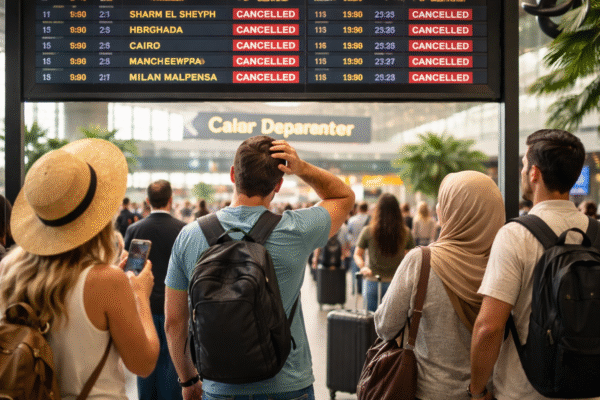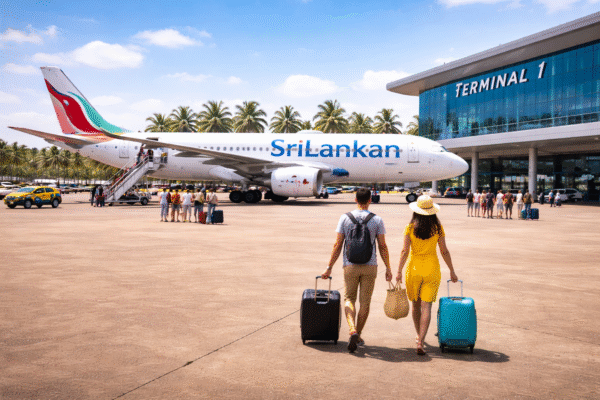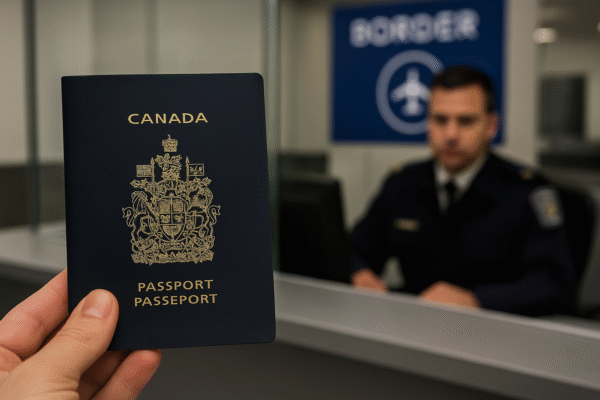Canada has issued an updated global travel advisory highlighting growing challenges faced by non-binary and gender-diverse travelers. The advisory warns Canadian citizens using passports with the “X” gender marker that they may face restrictions or questioning when entering countries that do not officially recognize non-binary gender identities.
Countries newly included in the advisory list include the United States, Japan, Romania, Latvia, and Singapore. The Canadian government emphasized that while its passport system allows citizens to choose “X” as a gender identifier, this recognition is not universally shared, creating potential barriers to international mobility.
Why the Advisory Matters
This latest development signals increasing complexities for LGBTQ+ and gender-diverse travelers. In some countries, entry procedures rely strictly on binary gender markers—male or female—leaving those with an “X” marker vulnerable to scrutiny, delays, or even denial of entry.
Canada’s advisory serves as both a warning and a guide, urging travelers to check regulations, carry supplementary documentation, and be prepared for additional questioning at border crossings. Importantly, officials also clarified that the Canadian government cannot intervene if travelers are denied entry due to their gender designation.
United States: Policy Changes Under Scrutiny
The United States has become one of the most concerning destinations for travelers with “X” gender markers. Recent shifts in policy—linked to executive actions limiting recognition of non-binary identities—have unsettled travel prospects.
While legal challenges are ongoing, Canadian officials caution that border agents may already be instructed to only recognize male and female identifiers. This means non-binary travelers could face longer questioning, difficulties during visa applications, and inconsistent treatment at different entry points.
Travelers are advised to ensure all supporting documents align with U.S. entry requirements and to remain prepared to declare themselves under the binary classification if pressed by officials.
Japan: Limited Recognition and Possible Hurdles
Japan presents a mixed scenario for Canadian travelers. While the nation allows entry with valid passports, its immigration system does not formally recognize the “X” gender marker. Border agents may still require individuals to declare their gender as either male or female, creating uncertainty during arrival.
Travelers are urged to carry additional forms of identification, such as government-issued letters or medical certificates, that may help clarify identity if questioned. Checking current regulations before departure is also essential, as Japan has not yet streamlined procedures for non-binary travelers.
Romania: A Lack of Clear Policy
Romania, an EU member, has no official framework for handling passports with “X” markers. While entry is not outright prohibited, confusion at checkpoints may lead to delays or even denial in certain cases.
Border authorities have discretion, and without a standardized protocol, experiences may vary significantly. Canadian officials recommend contacting the Romanian embassy before traveling and preparing for longer processing times at immigration.
Latvia: Schengen Rules Add Complexity
As part of the Schengen Area, Latvia follows strict documentation rules. Although it does not specifically ban “X” gender marker passports, complications can arise when entering through other Schengen countries that may interpret documentation differently.
Non-binary travelers are advised to familiarize themselves with Schengen travel regulations and carry supplementary proof of identity. Extra caution is recommended if travel involves connecting flights within the Schengen region.
Singapore: Cautious but Inconsistent Approach
Singapore, known for its strict immigration policies, does not formally recognize non-binary gender markers. While entry is not impossible, officials may question travelers holding an “X” passport and request clarification under binary terms.
Border questioning can lead to delays, and travelers are advised to bring supporting documents to reduce the risk of complications. As Singapore enforces stringent regulations, preparedness is key for smooth entry.
Kazakhstan: Emerging Concerns
Though not as prominent in the advisory as other countries, Kazakhstan represents another region where non-binary travelers may face uncertainty. Without a clear legal framework recognizing gender diversity, immigration officials may lack guidance when reviewing “X” passports.
Travelers are advised to research local laws, anticipate potential questioning, and factor in additional time for border checks.
General Tips for Non-Binary and Gender-Diverse Travelers
- Research in Advance: Always verify entry requirements for your destination before departure.
- Carry Extra Documentation: Supplementary papers, letters, or secondary identification may help during questioning.
- Consult Embassies: Contacting the nearest consulate can clarify how a country handles non-binary passports.
- Prepare for Delays: Plan travel schedules with buffer time in case of extended checks at immigration.
- Stay Updated: Monitor travel advisories and local news for changes in immigration rules.
The Bigger Picture: Why This Advisory Is Significant
Canada’s updated advisory reflects the broader global struggle for gender recognition. While some countries are moving toward inclusivity, others remain rooted in traditional frameworks, creating a patchwork of rules that complicate international travel for non-binary individuals.
For many, the issue is not simply about documentation but about visibility and respect for gender identity. The advisory highlights the reality that travelers may need to adapt to inconsistent international practices until more nations update their systems.
Final Takeaway
The Canadian government’s advisory is a timely reminder that travel freedom is not equally accessible to all citizens. For non-binary and gender-diverse Canadians, preparation, awareness, and resilience are crucial when navigating international borders.
With the United States, Japan, Romania, Latvia, Singapore, and other destinations under scrutiny, travelers must remain proactive. As global conversations on gender recognition continue, this advisory underscores the urgent need for harmonized policies that support safe and inclusive travel worldwide.
For more travel news like this, keep reading Global Travel Wire



















